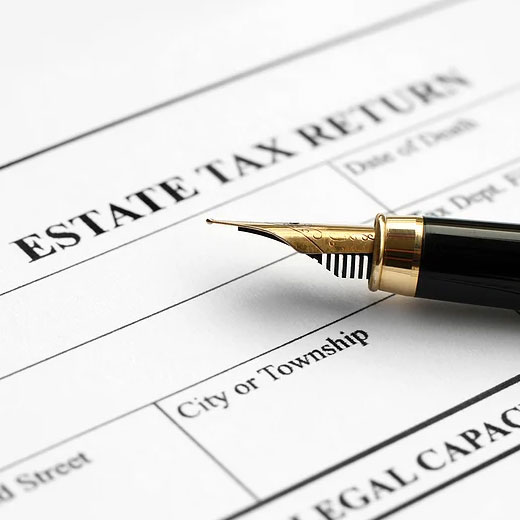There are 2 things we do not escape: death and tax. What if we mix both? Well, it gets messy and complicated. This article attempts to provide some clarity.
In general, there are 3 tax returns for individuals upon death: 1. A final 1040 individual tax return 2. An Estate 706 tax return. 3. The income tax return form 1041 for the estate. Sometimes people confuse the estate tax with income tax. Estate tax is a transfer tax imposed on the value of assets held by the wealthy at death.
The final 1040, as well as the 1041 for the estate, are often relatively easy to prepare in the grand scheme of tax filings but making sure there is a good cut-off between the two can be a challenge. For example, 1099’s from investment firms need to be prepared for income earned prior to the date of death, and then again for income earned after the date of death until the estate is closed. Often, the accountant will have to help with the allocation of income. At death, the fiduciary is responsible for the administration of the estate. This means contacting the bank brokerage houses, family relatives, the lawyers, and accountants, to ensure timely filing of tax and legal documents.
The form 706-Estate tax return is often much more complex. If one dies with a certain dollar amount of assets (currently, estates under $11.7 million are exempt, but this reverts to $5.49 million in 2026) a federal estate tax return is required, and a tax return filing will be due. If a return is required, it (and any estate tax) is due nine months after the date of death. Here is the list of items you will need to consider:
- Will the estate go through probate? A probate estate is when all the assets a person owns at his or her death are subject to probate administration. Probate administration is the process of proving to a probate court that the will is genuine. Do I have to go through probate? Answer is “Not really” If you are the administrator of an intestate estate (an estate without a will) or an executor of the estate (an estate with a will), you can settle the estate yourself by following the probate code (if no will) or decedent’s directives contained in will (if there is a will). Your best bet is to consult and work with an estate planning attorney to help you through this process.
- Every asset counts in estate tax returns even if you avoid probate. A common misconception is if probate is avoided, the estate tax is avoided. For example: Retirement assets with named beneficiaries are still included in the gross estate or assets in the revocable trust are also included in the estate, even though these types of assets do not go through the probate process.
- Past gifts. If any large gifts in the past (with Form 709 as support), these are counted into the estate when the tax is calculated.
- Jointly owned property. If property is owned jointly with a spouse, typically 50% of the value is included in your gross estate. If property is owned jointly with someone other than your spouse, 100% of the value is included in the gross estate unless it can be proved that the other party contributed some or all the value.
- How about marital deduction? Simply put, the IRS offers an unlimited marital deduction that allows married couples to make unlimited inter-spousal transfers of property without incurring a tax, either during their lifetimes or after their deaths. Upon the death of the first spouse, the exemption (11.7 million in 2021) can be wasted if all the assets go to the surviving spouse. However, an estate tax return Form 706 can be filed to add this unused exemption to the surviving spouse’s exemption, allowing the surviving spouse to pass on as much as $23.4 million (in 2021) free from estate tax. This is referred to as making a “portability election”.
- State tax. Some states impose their own estate tax, which may require additional planning. Minnesota happens to be one of them and has a $3 million estate tax exemption amount in effect for 2021. Additional exemptions may be available if a small business makes up a sizable portion of the estate.
Consult your CPA to discuss your own estate tax liability, and what you can do to reduce the taxes that may be due.




